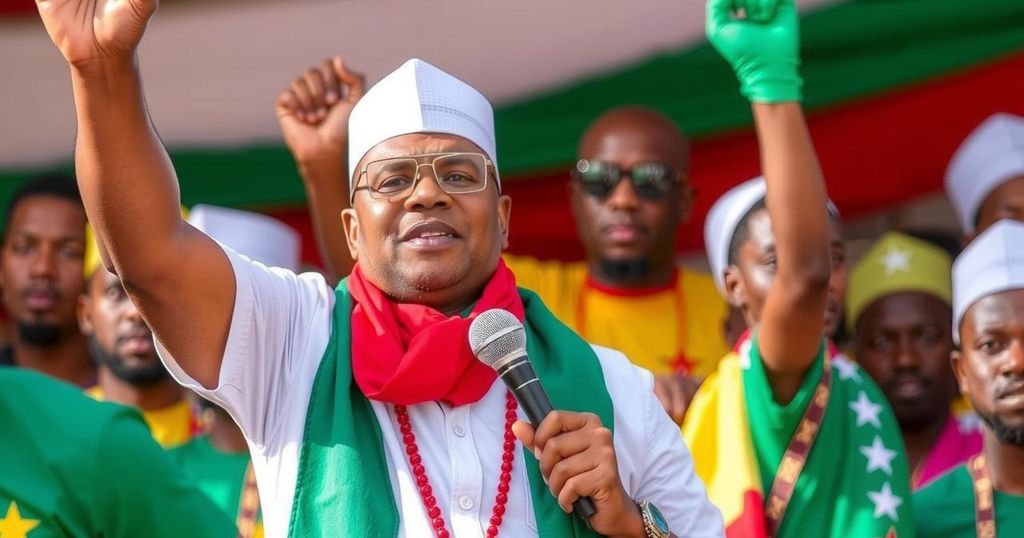Chad’s Ruling Party Secures Majority in Boycotted Parliamentary Elections

Chad’s ruling Patriotic Salvation Movement won a majority in recent parliamentary elections despite a boycott by key opposition parties. The elections, representing the first in over a decade, were criticized for lacking credibility. The results may reinforce President Mahamat Idriss Deby’s power amidst ongoing security issues and consultations toward decentralization.
In the recent parliamentary elections held in Chad, the ruling Patriotic Salvation Movement (MPS) claimed a substantial victory, securing 124 out of 188 seats amid a significant boycott by the primary opposition parties. The electoral commission reported a voter turnout of 51.5%. This election, which marked the first parliamentary vote in over ten years, was viewed by analysts as a move designed to strengthen President Mahamat Idriss Deby’s grip on power, following his ascension to authority after his father, long-time President Idriss Deby Itno, passed away.
Following the death of Idriss Deby Itno in 2021, the country underwent a transition stage aiming toward democratic governance under military rule. Mahamat Deby previously claimed that these elections would facilitate the long-desired decentralization of power, which would empower provincial and municipal authorities. However, over ten opposition parties, including the main opposition Transformers party, chose to boycott the elections, criticizing them as a “charade” that could replicate the controversial presidential vote from last year, which was deemed non-credible by observers.
The context surrounding these elections reflects Chad’s broader socio-political challenges. The nation faces numerous security threats, notably from Boko Haram activities in the Lake Chad region, alongside deteriorating military relations with France, historically an essential ally. Consequently, the election results come at a pivotal moment for the country’s governance and democratic future, as ongoing security concerns loom large.
Chad has experienced a tumultuous political landscape, especially following the death of Idriss Deby Itno, who ruled for thirty years. His son, Mahamat Idriss Deby, took control in 2021 and initiated a transition toward democracy, culminating in the recent parliamentary elections, the first in more than a decade. The current ruling party’s ability to secure a majority in this context raises questions regarding the legitimacy and credibility of the electoral process, particularly in light of the opposition’s boycott and prior criticisms of electoral integrity. The emerging governance structure is critical given the security issues Chad faces, including insurgent attacks and geopolitical shifts.
In summary, Chad’s recent parliamentary elections resulted in a decisive victory for the ruling party amidst significant opposition boycotts. While the incumbent government seeks to legitimize its rule through these elections, concerns about electoral integrity persist, particularly among opposition groups. The implications of these results are critical as Chad navigates security challenges and attempts to realize a transition to effective democratic governance.
Original Source: www.seattletimes.com






